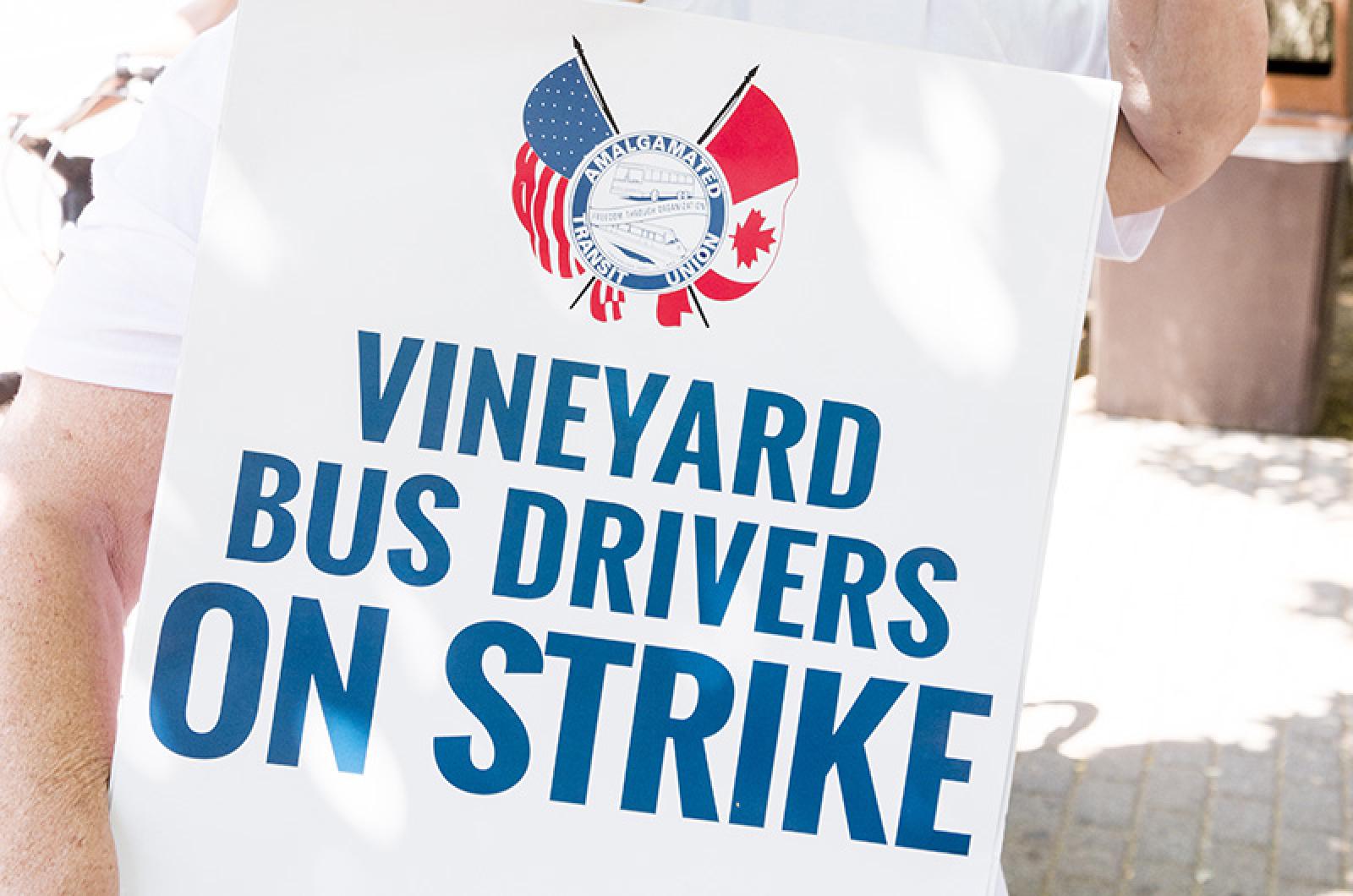It is hard not to admire the twenty one striking Vineyard Transit Authority drivers, who despite their small number have garnered much sympathy and attention in their bid for better wages and benefits.
But it is also hard to see how things will end well for them.
While buses are noticeably less crowded, most are still operating with temporary drivers brought in by Transit Connections Inc., (TCI) the Florida-based contractor responsible for operating the fleet. And while many Islanders are refusing to cross picket lines, as the strike enters its third week, day trippers and commuters alike are trickling back, with few affordable alternatives for getting around the Island.
And that may be the real irony of the story. The VTA's efforts to keep fares down for the many low-wage workers and tourists who depend upon the Island's bus system is being accomplished in part at the expense of low-wage drivers.
As it is, the VTA is heavily subsidized by federal, state and local funds. Ridership revenue accounts for only about twenty per cent of total capital and operating costs. Absent an unlikely increase in government support, transit authority management has few places to look for more money other than raising fares.
What has complicated the picture is the role of TCI, whose portrayal as the Bad Guys from Off-Island Who Don't Care About the Vineyard is not entirely unfair. In fact, one can easily imagine why it might be in the interests of the VTA to outsource the tricky and sometimes ugly business of labor management, as they have since at least 2012.
TCI aggressively fought the Island drivers' efforts to join the Amalgamated Transit Union all the way to the U.S. Court of Appeals, which ultimately ruled in the drivers' favor last year. This summer, they've brought in drivers from out of state rather than accede to the striking drivers demands.
The VTA's current five-year contract with TCI, signed by administrator Angela Grant and subject to annual review, cedes all human resource management responsibilities to TCI, including recruitment, hiring, termination, discipline, training, labor relations, compensation, fringe benefits . . . the list goes on. The VTA has the right to "make suggestions from time to time."
So if Ms. Grant dislikes the way drivers are being treated and her suggestions aren't heeded, her only option is to terminate the contract with 90 days notice and find a new contractor or take on the many headaches of managing a unionized labor force and seasonal workers herself.
And if the VTA's advisory board, made up of appointees from each Island town, figure out how to gather a quorum and decide they actually want to do something, their only real option is to insist Ms. Grant terminate the contract or terminate Ms. Grant.
None of those things is likely to happen.
The striking drivers are doing an excellent job of currying support among Islanders and politicians for their position, and perhaps TCI will be influenced by some better angels to give in to their demands.
Wouldn't that be nice.




Comments (2)
Comments
Comment policy »